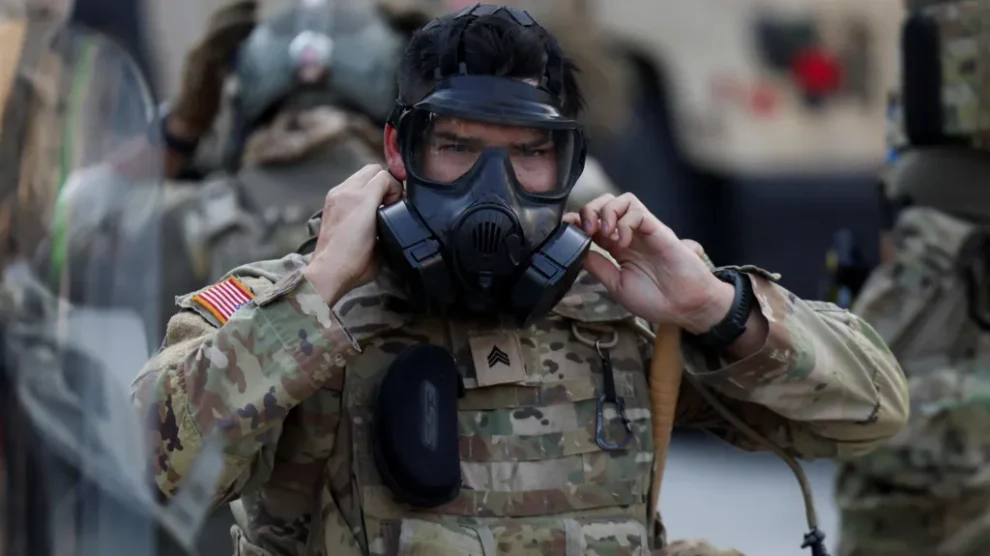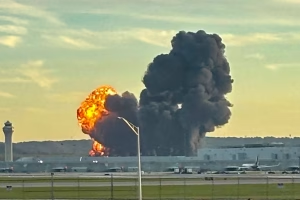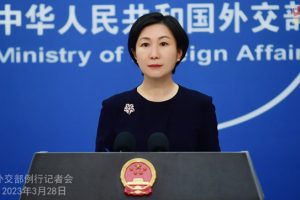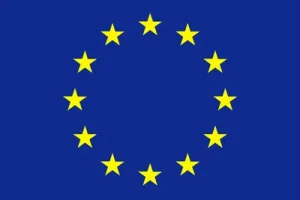Los Angeles, USA – A federal appeals court has temporarily blocked a judge’s order that would have compelled the Trump administration to relinquish control of California’s National Guard troops back to the state. The appeals court’s decision came hours after a federal judge ruled that President Trump’s deployment of the troops to Los Angeles, aimed at quelling protests against immigration raids, was illegal.
President Trump had stated he was sending the troops – who are typically under the authority of state governors – to prevent Los Angeles from “burning down” amid the demonstrations sparked by his administration’s immigration crackdown.
However, California Governor Gavin Newsom and other local officials strongly opposed the deployment, labelling it an unnecessary provocation. The appeals court has scheduled a hearing for Tuesday to further consider the case.
In an earlier federal court hearing, Judge Charles Breyer’s decision hinged on whether President Trump had adhered to the law set by Congress regarding the deployment of a state’s National Guard. “He did not,” Judge Breyer wrote in his ruling. “His actions were illegal… He must therefore return control of the California National Guard to the Governor of the State of California forthwith.”
The judge had initially stayed his order until Friday afternoon to allow the Trump administration time to appeal, which it did almost immediately.
Governor Newsom reacted to the initial ruling on social media on Thursday, stating: “The court just confirmed what we all know — the military belongs on the battlefield, not on our city streets.”
The Trump administration has maintained that it assumed control of California’s National Guard to restore order and protect Immigration and Customs Enforcement (ICE) agents as they conducted operations in Los Angeles targeting individuals believed to be in the country illegally. Despite Governor Newsom’s objections, President Trump ordered a total of 4,000 National Guard troops and 700 Marines to assist in quelling the unrest. Some of these Guard troops are now authorised to detain individuals until local police can make arrests.
This marks a rare instance where a US President has deployed the National Guard without a governor’s consent, a move last seen over 50 years ago during the civil rights era. It is more common for governors to activate troops for natural disasters and other emergencies, subsequently seeking federal assistance.
During Thursday’s packed courtroom hearing, Justice Department attorney Brett Shumate argued to Judge Breyer that Governor Newsom did not need to be consulted on President Trump’s order. “Governor Newsom was fully aware of this order…he objected to it,” Mr. Shumate said. “There is one commander-in-chief of the US armed forces.”
Judge Breyer, the younger brother of former Supreme Court Justice Stephen Breyer, challenged this assertion. “No,” he responded, stating that “the president isn’t the commander-in-chief of the National Guard,” although he acknowledged there are specific circumstances where the president could assume command of state troops. Wearing a light blue bowtie, Judge Breyer repeatedly invoked the Constitution during the hearing, at one point holding up a copy of the document.
“We’re talking about the president exercising his authority. And the president is, of course, limited in his authority,” he stated. “That’s the difference between a constitutional government and King George.”
Prior to the judge’s ruling, Secretary of Defense Pete Hegseth had repeatedly declined to state whether he would comply with Judge Breyer’s order. “What I can say is we should not have local judges determining foreign policy or national security policy for the country,” Mr. Hegseth said during a House Armed Services Committee hearing on Thursday, adding that he would comply with a Supreme Court ruling.
The appeals court’s decision late on Thursday allows the National Guard troops to remain in Los Angeles as the legal case proceeds through the courts. The Trump administration invoked a law that permits the president to call the National Guard into federal service during a “rebellion.” However, California’s lawsuit argues that the week-long protests in Los Angeles, which have included over 300 arrests and the temporary closure of a major freeway, do not constitute a “rebellion” or “insurrection,” nor have they risen to the level of past protests or riots seen in Los Angeles or other major cities.





Add Comment